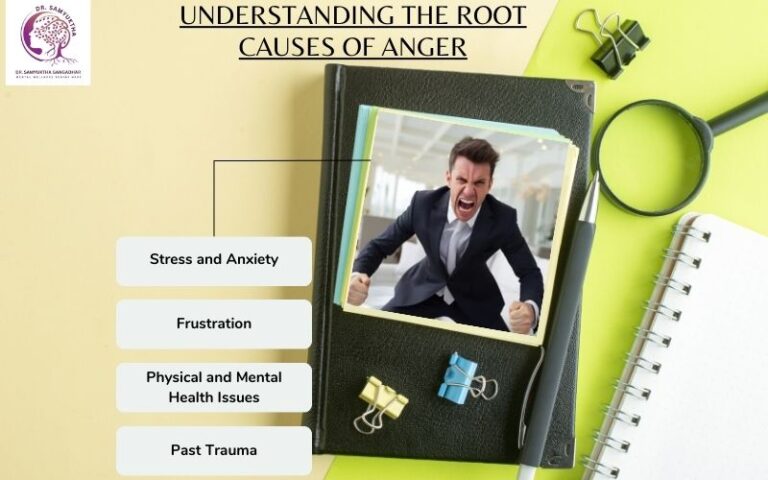Introduction
Everyone experiences anger as a natural emotion at some point in their lives. However, when anger becomes overwhelming or unmanageable, it can lead to significant problems in both personal and professional life. Understanding how to control and manage anger is crucial for maintaining mental health and overall well-being. Here, we explore the five keys to effectively controlling anger, essential for anyone seeking comprehensive anger issue treatment.
1. Understanding the Root Causes of Anger

Understanding why you get angry is the first step in controlling it. Anger often stems from a variety of sources, including:
- Stress and Anxiety: High levels of stress and anxiety can make it easier to lose your temper.
- Frustration: Feeling stuck or unable to achieve goals can lead to anger.
- Past Trauma: Unresolved issues from the past can trigger anger in present situations.
- Physical and Mental Health Issues: Certain health conditions can exacerbate anger, such as depression, bipolar disorder, or chronic pain.
By identifying the root causes of your anger, you can address the underlying issues rather than just the symptoms. This might involve keeping an anger journal to note what triggers your anger and how you respond.
Research Insight: Studies indicate that people with higher stress levels are more prone to anger (Smith et al., 2016). Addressing stress through relaxation techniques can significantly reduce anger incidents.
2. Developing Healthy Coping Mechanisms

Once you understand what triggers your anger, developing healthy coping mechanisms is essential. Some effective strategies include:
- Mindfulness and Meditation: These practices help in calming the mind and gaining better control over your emotions.
- Exercise: Physical activity can reduce stress and improve mood, making it easier to manage anger.
- Deep Breathing Exercises: Deep, slow breaths can help calm the nervous system and reduce the intensity of anger.
- Therapy and Counseling: Professional help can provide strategies and support for managing anger.
3. Communicating Effectively

Poor communication can often exacerbate anger. Learning to express your feelings constructively can help prevent misunderstandings and conflicts. Here are some tips:
- Use “I” Statements: Instead of blaming others, focus on how you feel. For example, say, “I feel upset when…” instead of “You always…”
- Stay Calm and Respectful: Even when discussing difficult topics, try to remain calm and respectful.
- Active Listening: Practice active listening by attentively focusing on the speaker’s words without interrupting.
Effective communication can prevent small disagreements from escalating into full-blown arguments.
4. Setting Boundaries

Setting clear boundaries is crucial in preventing anger from building up. Boundaries serve to safeguard your time, energy, and emotional well-being. Consider the following:
- Know Your Limits: Be aware of what you can and cannot handle.
- Learn to Say No: It’s okay to refuse requests that overextend you.
- Take Time for Yourself: Ensure you have time for activities that you enjoy and that relax you.
Boundaries help in maintaining a balance between helping others and taking care of yourself, thus preventing feelings of resentment and anger.
5. Seeking Professional Help

In situations where managing anger independently proves challenging, seeking professional assistance is a prudent step forward. A mental health professional can provide:
- Therapy: Cognitive-behavioral therapy (CBT) is effective in treating anger issues by helping individuals change their thought patterns and behaviors.
- Medication: In some cases, medication may be prescribed to help manage underlying mental health conditions that contribute to anger.
- Support Groups: Joining a support group can provide a sense of community and shared experiences.
Additional Tips and Strategies
Practicing Self-Care
Self-care is crucial in managing anger. Ensure you:
- Get Enough Sleep: Lack of sleep can increase irritability and reduce your ability to manage stress.
- Eat a Balanced Diet: Nutrition plays a role in your overall mood and energy levels.
- Engage in Hobbies: Spend time doing activities you enjoy to reduce stress and improve your mood.
Learning Relaxation Techniques
Incorporate relaxation techniques into your daily routine, such as:
- Progressive Muscle Relaxation: This involves tensing and then slowly relaxing each muscle group in the body.
- Visualization: Imagine a peaceful place or situation to help calm your mind.
- Yoga: Combining physical movement with breathing exercises can help reduce stress and anger.
Expert Advice from Dr. Samyuktha Gangadhar, M.D. (Psychiatry)
Conclusion
FAQs
To control anger quickly:
- Take Deep Breaths: Inhale deeply, hold briefly, and exhale slowly.
- Count to Ten: Count slowly to ten in your mind to calm down.
- Visualize: Picture a calming scene to shift focus.
- Walk Away: Remove yourself from the situation.
- Relax: Practice techniques like deep breathing or progressive muscle relaxation.
To address anger issues:
- Identify Triggers: Recognize what provokes your anger.
- Develop Coping Skills: Learn mindfulness and cognitive techniques.
- Communicate: Express feelings calmly and seek solutions.
Reasons for frequent anger:
- Stress: High stress levels can lower tolerance.
- Past Issues: Unresolved traumas or health conditions.
- Learned Behavior: Coping mechanisms from upbringing.

